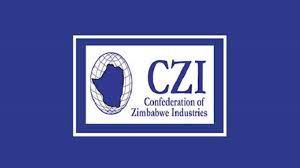
ZIMBABWE’S industries have called for tougher measures to tackle prolonged inflationary pressures.
In an analysis of inflationary trends for 2023, the Confederation of Zimbabwe Industries (CZI) said it was concerned about the sudden surge in month-on-month inflation at the end of 2022, even after a slowdown in the annual rate.
Zimbabwe’s annual inflation rate tumbled to 243% in December, from a peak of 285% in August after government moved to review payment terms to supplies, while the central bank accelerated its mop up operation to cool off volatile markets.
But CZI called for more belt tightening measures to tame a rate that is by far the world’s highest.
“Annual inflation ended the year 2022 at 243,8%, shrinking by 11,2 percentage points from the November inflation rate,” CZI said in its analysis titled “2022 Inflation and Currency Developments Round Up”.
“The December annual inflation rate was above the 2022 national budget end period target of between 15% and 20%, as well as above the February monetary policy statement target of 25% to 35%,” CZI added, as it cautioned of potentially vexing times ahead.
“The beginning of the year is associated with new policy measures for the year, which may hold inflation down but (these) seem to fail to stay the course as it (inflation) surges again. Delayed policy responses seem to sustain high inflation or its upward movement,” the report added.
In September 2022, Treasury and the central bank introduced a series of measures to tame soaring inflation, a month after the rate touched the 285% mark.
- ‘Inflation could shoot to 700% by April next year’
- Mthuli Ncube abandons struggling consumers
- New perspectives: Inflation control critical for economic growth
- Inflation spike: Why interest rates aren’t the answer
Keep Reading
The central bank’s monetary policy committee hiked the policy rate to 200%, from, 80% previously, while a series of payments to State suppliers were briefly halted and reviewed as government blamed them for exacerbating the crisis by overcharging.
Authorities also introduced a 40% capital gains tax on stocks sold before 270 days from trades to tackle speculative trading.
“The sudden increase in month-on-month inflation for December (2,4%) is thus a cause of concern, as it could imply that new measures are needed,” CZI warned.
“Inflation in Zimbabwe is generally responsive to exchange rate depreciation, especially the parallel market rate. In December 2022, the parallel market rate started depreciating, which would be the most logical explanation for the resurging inflationary pressures,” the report added.
On Zimbabwe’s increasingly dominant parallel market, the local unit has tumbled in the past month to about US$1: $1 200, from about US$1:$750 in September.
Analysts say government, under pressure to pacify its suppliers from a prolonged payment hiatus, has been injecting Zimbabwe dollar liquidity to settle outstanding dues.
Desperate to preserve value, recipients have flooded the black market to buy greenbacks, sparking the inflation rage and currency depreciation.
- Follow us on Twitter @NewsDayZimbabwe











